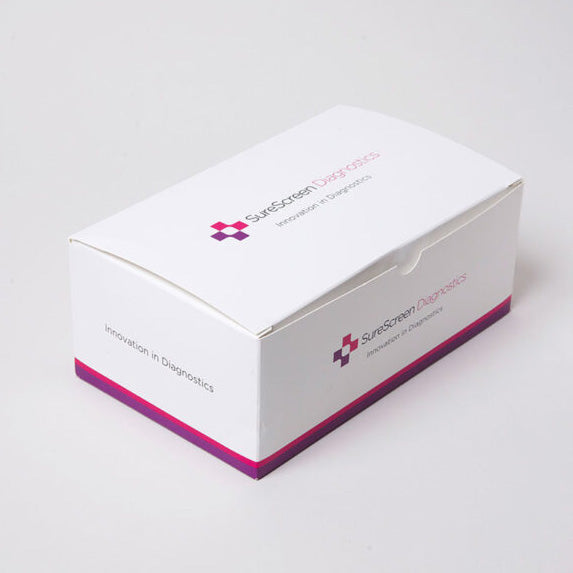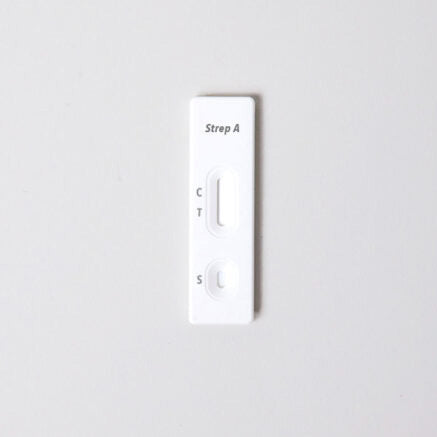

For professional use only.
Rapid results Strep A screening test.
Includes:
- Test Cassettes
- Extraction Buffer Tubes
- Sterile swabs
- Workstation
- IFU
Test Procedure
1. Add 4 full drops of Regent A and B to tube
Bring the pouch to room temperature before opening it. Remove the test strip from the sealed pouch and use it as soon as possible. Hold the Reagent A bottle vertically and add 4 full drops (approximately 240 μL) of Reagent A to an extraction test tube. Reagent A is red in color. Hold the Reagent B bottle vertically and add 4 full drops (approximately 160 μL) of Reagent B. Reagent B is colorless. Mix the solution by gently swirling the extraction test tube. The addition of Reagent B to Reagent A changes the color of the solution from red to pale yellow.
2. Add the throat swab into the tube
Immediately add the throat swab into the extraction test tube of yellow solution. Agitate the swab by rotating it at least 10 times. Leave the swab in the extraction test tube for 1 minute. Then express the liquid from the swab head by rolling the swab against the inside of the tube and squeezing the tube as the swab is withdrawn. Discard the swab.
3. Transfer 3 drops of the sample solution
Fit the dropper tip on top of the extraction buffer tube. Place the test cassette on a clean and flat surface. Do not move the test cassette during the test. Hold the dropper vertically and transfer 3 drops of the sample solution (approx.80μL) to both sample wells and then start the timer. Read the result at 10 minutes. Do not interpret the result after 20 minutes
4. Interpretation of results
POSITIVE:* Two lines appear. One coloured line should be in the control line region (C) and another apparent coloured line should be in the test line region (T). specimen. Therefore, any shade of colour in the test line region (T) should be considered positive. NEGATIVE: One coloured line appears in the control line region (C). No line appears in the test line region (T). INVALID: Control line fails to appear. Insufficient specimen volume or incorrect procedural techniques are the most likely reasons for control line failure. Review the procedure and repeat the test with a new test.



